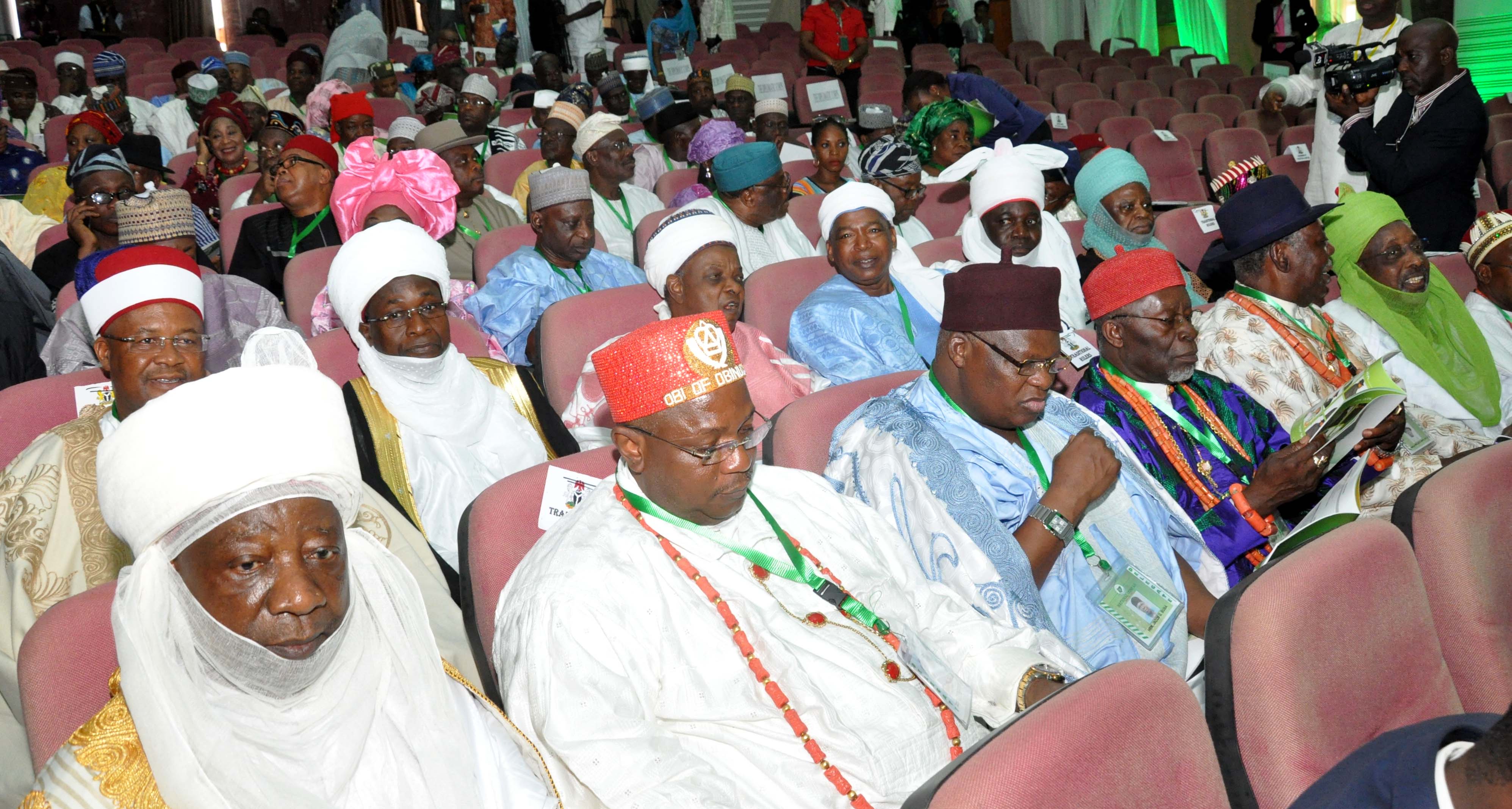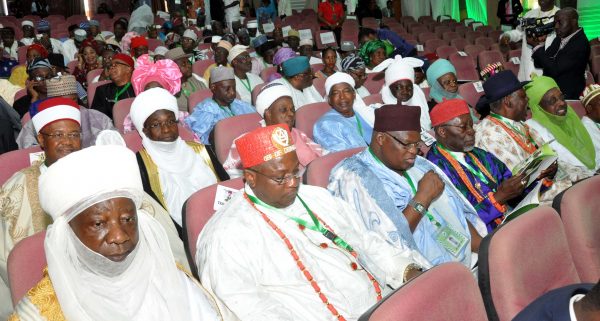The 2014 National Conference is arguably the only properly conducted National Conference without an ulterior agenda. The conference, which was inaugurated in Abuja by former Nigerian President, Dr. Goodluck Ebele Jonathan, on 17th March 2014, had some of the brightest minds in attendance and cut across the entire fabric of the Nigerian society.
Out of the 492 delegates who attended the conference, the former president nominated 37 statesmen drawn from each of the 36 states of the federation and the FCT. The other delegates who sat at the conference were drawn from all corners of the country and each of them leaned in favour of the abounding interests which represent the Nigerian diversity and heterogeneity. They all gathered for three months to deliberate about forging a path to guide the country safely to greater heights.
While there was a flurry of aides who helped the delegates carry out their duties seamlessly and on time, the principal officers of the conference had members who doubled as; Chairman – Justice Idris Kutigi (rtd), Vice Chairman – Prof. Bolaji Akinyemi and Secretary – Dr. Valerie Azinge, among others.
Committees numbering over 20 were also created to cut across the sections of the society and areas of interest – the committees had Devolution of Power, Political Restructuring and Forms of Government National Security, Environment, Politics and Governance, Law, Judiciary, Human Rights and Legal Reform, Social Welfare, Transportation, Agriculture, Society, Labour and Sports, Public Service, Electoral Matters, Foreign Policy and Diaspora Matters, Land Tenure Matters and National Boundary, Trade and Investment, Energy, Religion, Public Finance and Revenue Generation, Science, Technology and Development Immigration, created and populated by the delegates, as necessary.
Before the 2014 Conference, there had only been two other previous conferences – the 1994/1995 Constitutional Conference convoked by Gen. Sani Abacha and the National Political Reform Conference (NPRC) convoked by former President Olusegun Obasanjo. But just like the previous ones, almost none of the recommendations were utilized.
As soon as the report of the conference was submitted to Jonathan, experts began to express their reservations about the document, as well as question the viability of some of the decisions with respect to the feasibility of their implementation. Partisan and ethnic organizations also had one disagreement or the other with the report despite the fact that they were duly represented at the confab.
At the presenting of the conference report to Jonathan on August 21, 2014, the former president promised to implement the report. However, the National Assembly had no modus in place to adopt any of the recommendations passed in the report; the Federal Government also remained clueless about its implementation as the fierce 2015 general elections approached.
Although the delegates passed more than 600 resolutions, and with the inertia of the committees, also produced a 10,335-page report by the end of the plenary and other proceedings, it would appear that the report would only be dumped in the bin by the incoming administration of President Muhammadu Buhari.
Despite the millions of Naira expended, the fate of the 2014 National Conference has become another good effort that has wasted away.
Featured image source: Daily Post Nigeria


